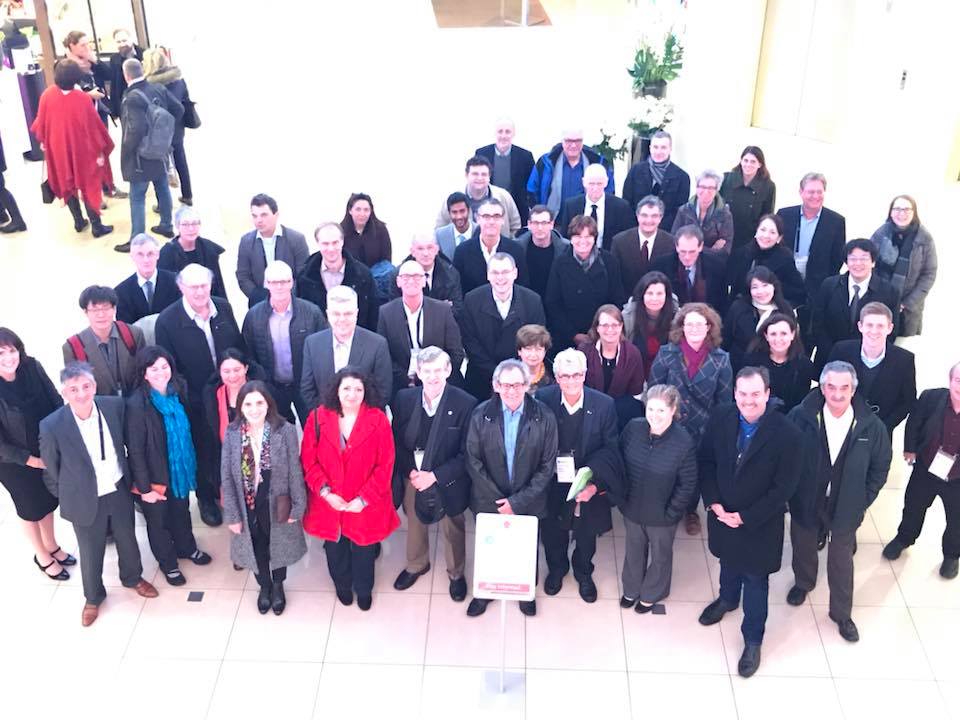One of the most interesting developments of the JPIAMR right now is the JPIAMR-VRI; the Virtual Research Institute on AMR. The JPIAMR-VRI is a key to unlock new potentials of AMR research and to be even more inclusive by increasing the diversity of researchers working together on AMR across disciplines, embracing the One Health approach.
From nearly all the continents of the world, with only South-America missing, a diverse crowd representing organisations in Japan, Egypt, South Africa, South Korea, USA, Canada and many European Countries met for two days in Berlin. During this two-day meeting we shared the room with representatives from research organisations, WHO, Wellcome Trust, Pew Charitable Trusts, GardP, IMI, Tatfar, the European Commission, The Global AMR R&D Hub, and CARB-X. The objective of the workshop was clear: To develop the scope, aims and model a JPIAMR Virtual Research Institute – a dynamic network for AMR research. Invited speakers shared examples of research networks that are successful and up and running today. Among them were Wim van der Poel from the Collaborating Veterinary Laboratories (Covetlab), Robert Hancock from the Canadian Bacterial Diseases Network (CBDN) and Martin Krönke who shared insights from the German Center for Infection Research (DZIF).
The outcomes from the workshop can be summarised in two sentences: “Let’s get going” and “to be all inclusive and truly global”. As the focus and model for the VRI became clearer, participants asked for the VRI to have an element of disruption, because AMR research now needs to be addressed in new ways.
The JPIAMR-VRI is a virtual platform to connect research networks and research performing institutes/centres to implement Antimicrobial Resistance One Health collaborative research on the JPIAMR Strategic Research Agenda priority topics by increasing knowledge, diversity, collaborations and capability.
An important aim of the JPIAMR-VRI is to create long-term sustainability of networks; connect existing networks across borders and across disciplines, increase research outcomes; improve capabilities and training; and attract new/young scientists to the AMR field.
Some of the capabilities the VRI will provide and enable are:
- Connecting AMR researchers under the JPIAMR priority topics in a One Health approach
- Building capacity and strengthening capability
- Facilitating access to scientific information and infrastructures
- Global reach: Bridging geographic borders in the research community
- Breaking practical barriers between fields of research
- Increasing the visibility for the AMR issue
- Driving the uptake of research into policy
Some of the potential outcomes of the JPIAMR-VRI are:
- Integrating activities among networks: Joint research programmes/work plans across research centres or research networks
- Develop knowledge gaps and gap analysis based upon and enhancing further the JPIAMR mapping/database of AMR research projects and research centres increasing visibility of the research performed
- Data sharing
- Sharing of negative results
- Scientific evidence for policy and guidelines
- Exchange programmes between researchers (e.g. fellowship schemes, travel grants etc)
- Networking activities
- Educational and training programmes
So, how is all this to be manifested? The JPIAMR member nations will take clear actions to build the foundation for the JPIAMR-VRI. We will implement the actual digital platform and the AMR context in 2018 via workshops, a JPIAMR Network/Working Group call and a variety of other activities.
Please continue to follow us via social media, subscribe to our newsletter and connect with us to follow and engage in the process and progress of manifesting the JPIAMR-VRI.


